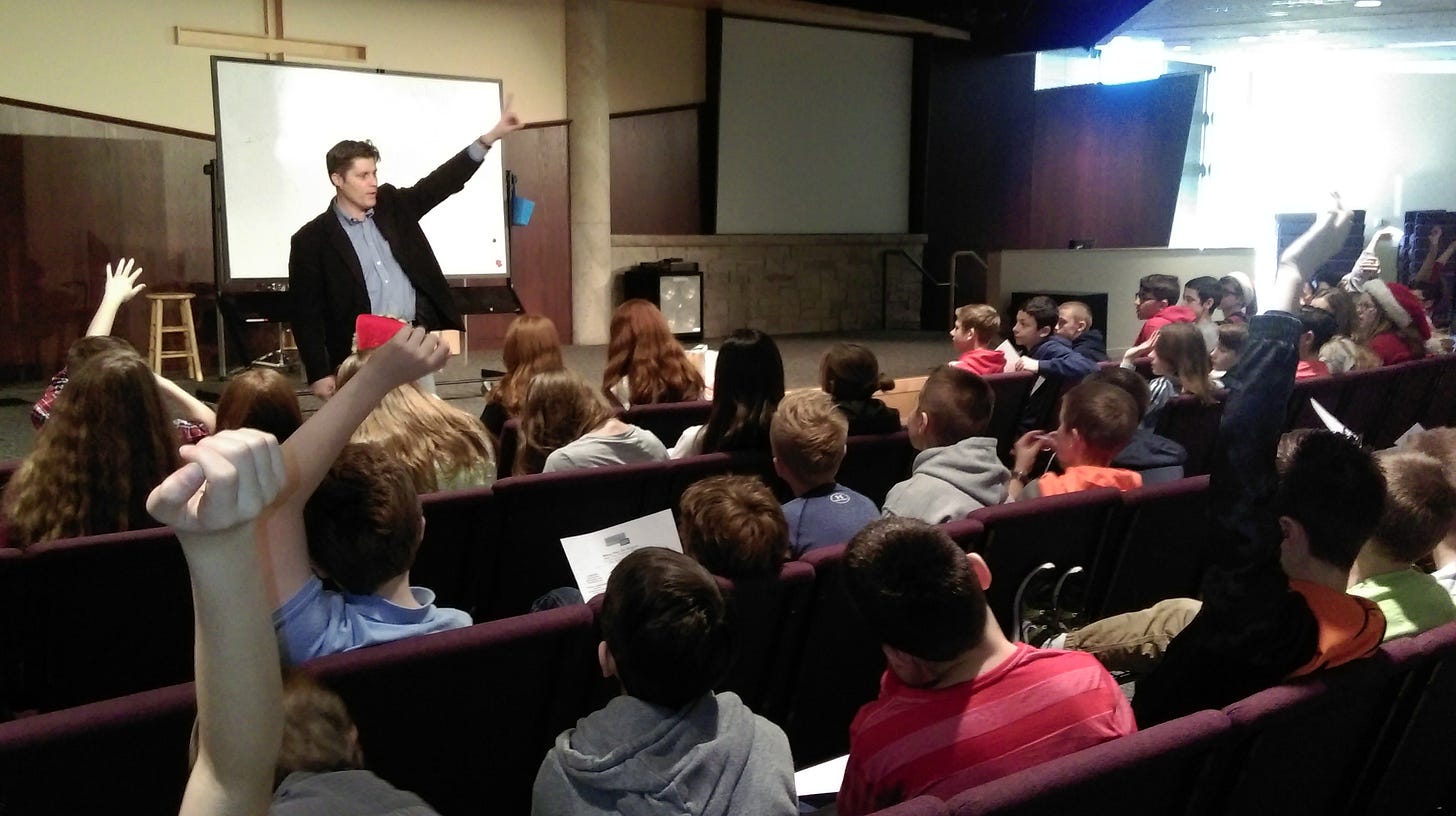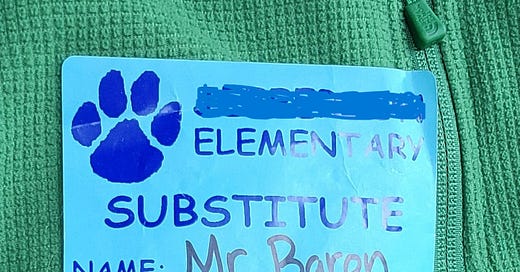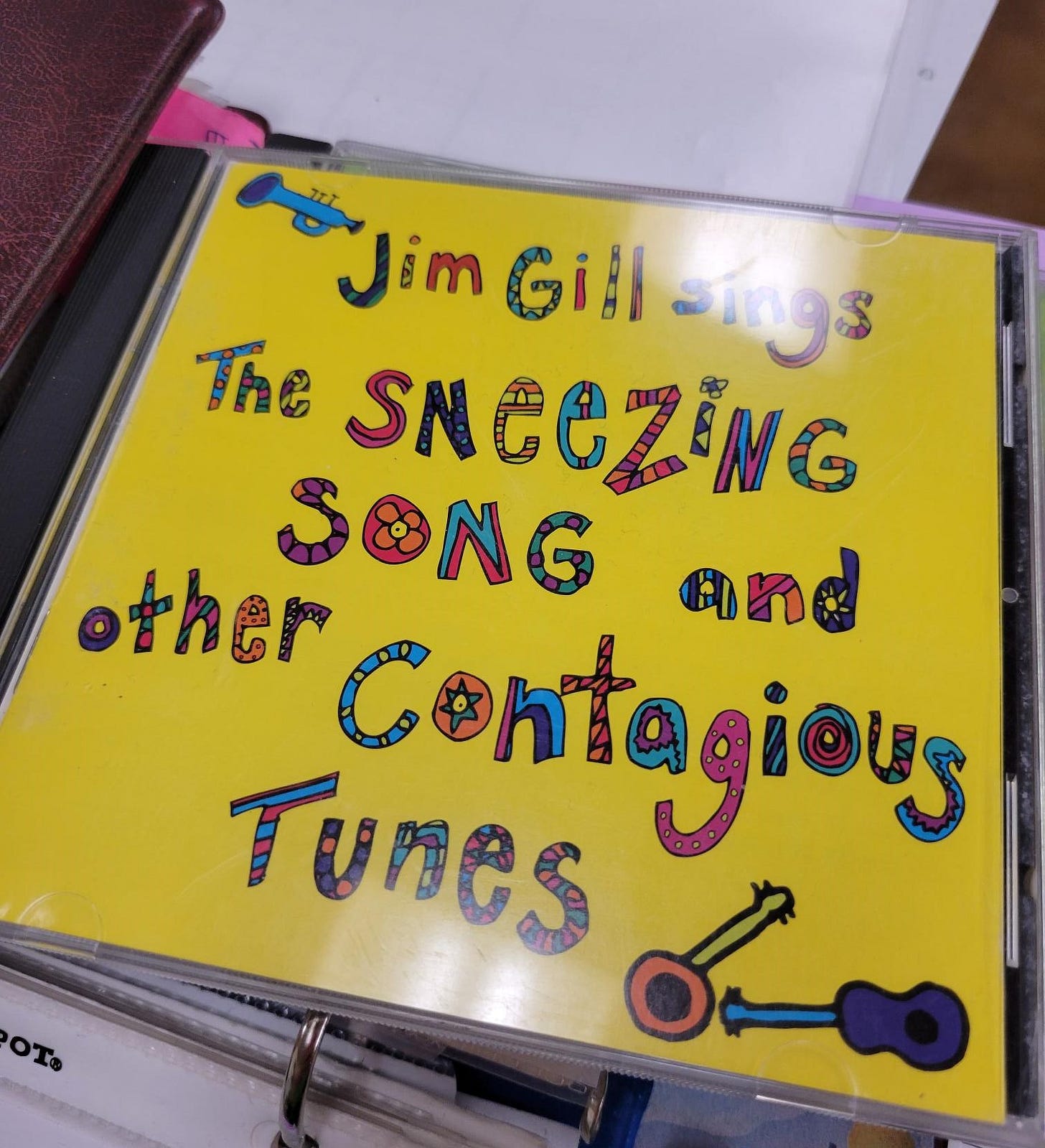Adventures in substitute teaching
Amid a national shortage in school subs, my new part-time role--from teaching kindergarten pupils to high school students--has been a grueling, yet gratifying work in progress.
Five weeks ago, I got first-day-of-school butterflies—that mix of excitement, anticipation and anxiety after being away from your classmates over the summer break.
In my case, the hiatus had been nearly 40 years. And these weren’t classmates, but students in a class I was teaching. No longer was I “Matt,” but “Mr. Baron, The Substitute Teacher.”
As I rang the front door of the middle school, waiting to be buzzed in, dueling emotions raged within me. On the one hand, I felt like an imposter. Who was I to be in charge of a classroom? On the other hand, it was the logical outgrowth of decades of dipping my feet in various pools of the educational field.
This new, decidedly part-time chapter in my life “scratches an itch,” as a friend recently described it. It merges my passion for teaching with mentorship, as well as my desire to sow encouragement in the hearts and minds of children who battle discouragement and doubt about their abilities and their place in the world.
That same itch has led to volunteer roles in schools for over 25 years, from one-day Junior Achievement talks about journalism, public relations and math literacy to a four-year term on a high school board of education.

This past summer, after years of expressing my admiration for and envy of friends and family members who are schoolteachers, I had an epiphany: It wasn’t too late to become one, even if only as a “sub.”
After getting the requisite certification and completing several highly detailed applications (and background checks), my debut arrived on the Friday after Labor Day.
The subject was financial literacy, with the lesson on the perils of impulse buying. Scanning the list of names in my first class, I had my own impulse about taking attendance. Aware that I was bound to mispronounce more than a few student names, I did what any wise-cracking 55-year-old first-day sub would do.
“Hey, everyone,” I announced. “When I go down this list of names, I apologize in advance if I mispronounce your name. In fact, so that nobody feels left out, I’m going to mess up all of your names.”
As I conjured fresh ways to comically slay common names like Michael and David, these tweens, to their credit and my relief, responded with amusement rather than eye-rolling scorn.
All in all, the day went well as I circulated throughout the classroom to keep tabs on everyone’s progress on their laptop computer-based lesson. While some “tested” me, nobody’s behavior was so out of line that I felt the need to send them to the principal’s office—something that I have since had to do only once (so far).
Nearly two weeks later, I jumped on a chance to be an elementary school music teacher. “This,” I thought, “should be fun.”
Oh, how much I have to learn. While there were absolutely enjoyable aspects of the experience, I’d say “overwhelming” was its more defining quality. One teacher after another marched their classes to my door, offered a gleeful wave and said, “Good luck.”
I don’t know about all music teachers everywhere, but on this day, at this particular school, being a music teacher was a non-stop affair. Within moments of one class departing, another paraded to my door. Aside from a 20-minute PB & J lunch break at my desk, I was “on” the entire time as I tried to navigate the full-time teacher’s detailed lesson plan.
Ultimately, I led far more conga lines and played way more Jim Gill music than was in the blueprint.
When I saw Jim’s greatest hits were in the curriculum, I smiled—it was like having an old pal as a sidekick. Over the years, I’ve spoken with Jim a handful of times and my children attended his music concerts when they were little—he’s a legit children’s music celebrity.
By day’s end, my appreciation for him had risen higher as his renditions of “I Took a Bath in a Washing Machine” and “Alabama, Mississippi” and “Old Sock Stew” bought me precious two- and three-minute increments of time while I figured out what to do next.
Through it all, the kids seemed to be having an extraordinary amount of fun, if decibel levels are any gauge. Alas, music to my ears was pandemonium to at least one teacher’s. Upon retrieving them, she scolded the kids for the ruckus she heard even while at a distance coming up the stairs.
She didn’t look at me directly, but it was obvious that her remarks were an indirect message to me: Get your act together, Mr. Substitute.
Afterwards, I informed my nephew Liam, an elementary school music teacher in New Hampshire, that I had joined the music-teaching ranks.
“What was the best part of the day?” he asked.
“Dancing and playing music with the kids,” I texted back. “…and, leaving. I was exhausted!”
A national substitute teacher shortage
That sense of fatigue marks the entire educational field, with absenteeism among teachers on the rise.
Nationally, there are about 250,000 teacher absences every school day, according to The Journalist’s Resource, a project of Harvard Kennedy School's Shorenstein Center.
From managing editor Denise-Marie Ordway’s lede in this January 2023 story:
“Teacher absenteeism has surged in U.S. public schools since the start of the COVID-19 pandemic and, with it, demand for substitute teachers.
Last school year, almost 3 out of 4 public schools reported higher rates of chronic teacher absenteeism, or teachers missing 10 or more days of work, according to the U.S. Department of Education. At the same time, 77% of schools reported having more difficulty finding substitutes to fill in while regular teachers were out, with 61% saying it was “much more difficult” than it had been before COVID-19 began to spread.”
One of the reasons is the low pay—as low as $60 a day in Mississippi and as high as $199 in New York City, where the cost of living is so much higher. In the Chicago area, the per-day rates tend to be in the $130 to $150 range, so there’s a continual scramble to fill those slots with capable substitutes.
In the school district where I have subbed most often, I could do it five days a week. But amid my writing and editing and public relations work, the most I can afford to do is roughly once a week. So, I pick my spots.
Over the last three weeks, between that district and the one where I served on the board of education, I have been a middle school math and special education teacher, a high school physical education teacher, a high school history teacher and, just two days ago, a kindergarten teacher.
Along with an aide and two college students who helped as they pursue their own schoolteacher dreams, I taught a group of 27 kindergarteners. Everyone in the room, except me, was fluent in Spanish. Most of the students spoke English very well, though being in that environment with so much Spanish in the air prompted me to utter “si” and “bueno” and “gracias” and other basic Espanol more than I’ve ever done before in my life.
It was, to borrow a word that I used frequently to praise their work, fantastico. After seven hours, a bond had formed. Several kids asked if I’d be coming back.
“I don’t know,” I told one boy at day’s end. “I hope to be back.”
“Be back,” he instructed, then turned and walked out of the classroom.
One final story from the day: early on, I read “The Very Cranky Bear,” about an encounter between a zebra, a lion, a moose and a sheep with a slumbering bear. One of the subplots was how three of the animals wanted to project their own defining traits—stripes, a mane, antlers—on the bear.
But none of that is what the bear needed. The happy ending occurred only when the sheep, recognizing the bear’s need for rest, sacrificially provided its own wool to create a pillow for him.
It’s a sweet story, and it contains a lesson for me, as a developing teacher: My focus should be on what students need more than anything that I want to impart in any given moment. In fact, if I do it right, my entire substitute teaching experience isn’t for me at all—it’s for them.
Of course, the kids were not waxing that philosophical when I closed the book. The Very Cranky Bear’s biggest impact was how it prompted some of the pupils to refer to me. While I was “Mr. B” or simply “Teacher” to most of the children, several blurred the book with my identity and assigned me a new name: “Mr. Bear.”
That worked well enough. Like me, they’re still learning.







A great topic and kudos to you for going after this opportunity. I would like to see more depth and perhaps a continuation of the journey. Im curious about some things, how it is possible to drop in each day to a different subject and other teacher's curriculum and pick up with it running. Basically the baton hand off. And secondly how your segment of the relay goes --the education being conveyed as you venture across disciplines perspective. I come from a teaching family so this topic is very interesting.
Matt, I really enjoyed this piece. I tried a stint as an after-school tutor with my church at a school in north St. Louis, and discovered that I don't have the temperament needed to have the student be successful. I have instead decided that I can be most useful to the school in the office, assisting where needed in that capacity. I'm sharing your article with my daughter who is an elementary and middle school music teacher. I'm sure she will agree that it's a non-stop pace throughout the day!